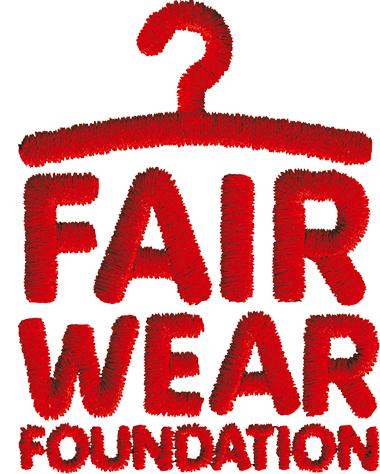FWF is proud to introduce its new Labour Minute Calculator for Bangladesh. The Calculator enables suppliers and buyers to determine the cost of one minute of labour in a factory.
Bangladesh recently approved a 51-percent increase (for Grade 7) in the statutory minimum wage. With the higher cost of labour comes the responsibility for brands to revisit their pricing levels. The Labour Minute Calculator enables suppliers and buyers to determine the cost of one minute of labour in a factory and makes components such as bonuses and insurance visible.
The new FWF tool offers enough flexibility to accommodate for exchange rate fluctuations and real overtime hours.
Higher costs
With the Calculator, brands and factories can identify the increase in the manufacturing price of garments required to cover the higher costs of labour due to the minimum wage rise.
The Labour Minute Calculator complements FWF’s country-specific ‘Wage Calculation sheets’, launched in Beta version earlier this year. While FWF’s new tool offers real functionality for factories seeking to adhere to legal requirements and/or living wage commitments, the Wage Calculation sheets help calculate wage increases on a worker-by-workers basis and can also be used to verify that workers receive wage increases.
Feedback!
The new FWF tool for Bangladesh was launched to coincide with the minimum wage increase in Bangladesh, but FWF intends to make the Labour Minute Calculator tool available for other production countries in the future. Moreover, the tool will be expanded to allow for the calculation of a factory’s labour minute cost based on ‘a’ living wage benchmark.
To create the best tools, we welcome feedback from stakeholders, brands and factories to make sure these instruments are as relevant as possible.
A new regulatory environment: the UN’s guiding principles on Business & Human Rights
Following the translation of the UN’s Guiding Principles on Business and Human Rights, a new set of due diligence guidelines are in place, which define due diligence as ‘the process through which enterprises can identify, prevent, mitigate, and account for how they address their actual and potential adverse impacts’ in their sourcing practices.
The OECD has provided some guidance on how such principles translate in the area of wage compliance, stating that this should include both wage compliance with national laws and ensure that wages satisfy the basic needs of workers and their families. For manufacturers, wage compliance also means covering those non-mandatory elements, which require them to retain, incentivise and reward their workforce.
Brand Performance Checks
Through our annual Brand Performance Checks, FWF assesses whether our member brands are exercising proper due diligence in their price negotiations with their vendors regarding wage compliance. However, it has become clear that brands require the cooperation of factories to perform due diligence, as buyers often do not have a full picture of their supplier’s labour costs.
Research has also found that when minimum wages increase, many garment companies do not increase their prices enough to absorb all the additional costs of production. This is why, in anticipation of the 2018 minimum wage rises in Myanmar and Bangladesh, we at FWF began researching with suppliers how to provide assistance with the development of a Costing Calculator tool that brands and factories can all use.
–> Read more about this topic in the FWF Labour Minute Costing publication and the new FWF report: Using Due Diligence in Labour Costing to meet wage compliance






















 Educate yourself
Educate yourself Check the working conditions
Check the working conditions Choose eco-friendly materials
Choose eco-friendly materials Use the FWF Shopping List
Use the FWF Shopping List Aim for quality over quantity
Aim for quality over quantity Get thrifty!
Get thrifty!